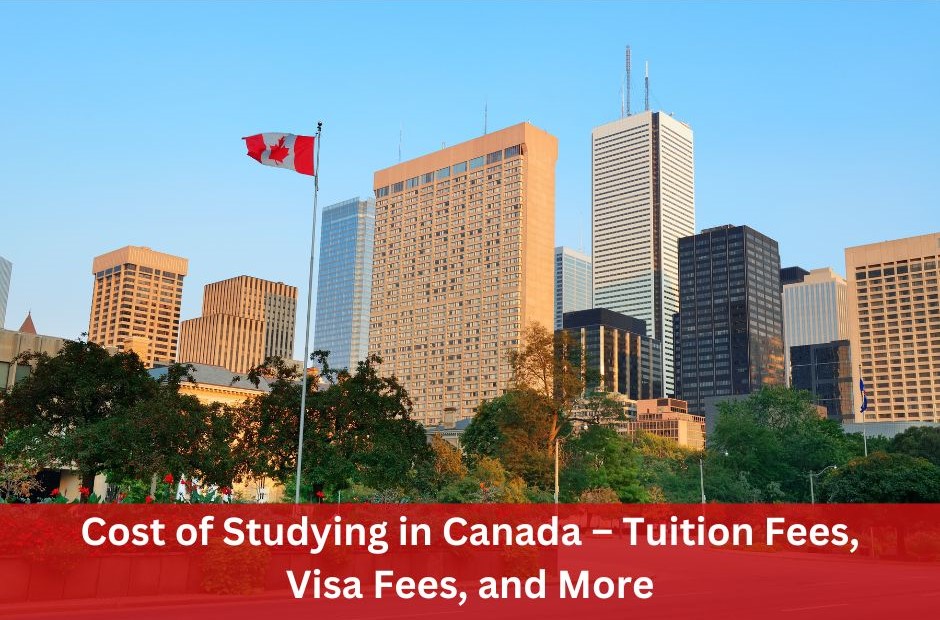Canada is a top destination for higher education, offering various courses like undergraduate, postgraduate, doctoral, and vocational studies to students worldwide. According to the Canadian Bureau of International Education, Canada ranks third globally for hosting many international students.
In Canada, universities provide a wide range of options, including undergraduate and postgraduate certificates, as well as short-term courses. Students can choose between private, public, or community colleges for their studies.
Studying in Canada has become a popular choice for students globally because it’s affordable and offers an advanced education system, prestigious institutions, and a safe environment. Additionally, tuition fees for educational programs in Canada are pocket-friendly.
Compared to other countries, study cost in Canada is affordable for international students. On average, tuition fees range from CAD 20,000 to CAD 30,000 per year. However, the total cost depends on factors like the institution, chosen program, and student lifestyle. Typically, students can expect to spend around CAD 21,000 annually on expenses.
Canada – Cost of attendance
The complete expenses of attending a university involve various elements like books, supplies, groceries, and accommodation, whether on-campus or off-campus. However, the tuition fee stands out as a significant contributor. The table provided below offers a breakdown of the total costs associated with pursuing education at a Canadian university.
| Type of Expenditure | Cost Range in CAD |
| Books & Supplies | $200 to $350 per semester |
| Undergraduate Program | $30,000 per year |
| Postgraduate Program | $20,120 per year |
| On-Campus Residence | $7,000 to $8,000 per year |
| Off-Campus Shared Apartments | $400 to $700 per month |
| Food & Groceries | $200 to $600 per month |
University Tuition Fees in Canada: Program-Wise
Navigating the landscape of college choices poses a considerable challenge for students. To streamline this process, having an approximate idea of the tuition fees can significantly ease their decision-making. For those eyeing a bachelor’s degree, the annual tuition expenses range from CAD 1,800 to CAD 33,623. Importantly, there has been a 4.9% uptick in the average tuition fees compared to the preceding year. This increase highlights the evolving nature of educational costs, emphasizing the need for thoughtful and well-informed choices in the pursuit of higher education.
Tuition Fee for International Students: Province-Wise
Tailoring their decision to both their financial considerations and the estimated average tuition fees for undergraduate and postgraduate programs, students can judiciously navigate the selection of the university that aligns with their preferences.
| Province | International Undergraduate (CAD) | International Graduate (CAD) |
| British Columbia | 30,903 | 20,295 |
| New Brunswick | 16,458 | 13,123 |
| Nova Scotia | 20,397 | 23,048 |
| Quebec | 27,406 | 18,577 |
| Ontario | 42,185 | 26,236 |
| Alberta | 28,014 | 15,167 |
Tuition Cost for studying in Canada | Field-Wise
| Field of study group | Undergraduate cost in CAD | Graduate cost in CAD |
| Business management and public administration | 26,680 | 24,693 |
| Humanities | 28,676 | 13,667 |
| Engineering | 33,703 | 19,301 |
| Law, legal professions and studies | 33,192 | 17,237 |
| Nursing | 21,922 | 16,168 |
| Mathematics, computer and information sciences | 33,012 | 16,647 |
The choice of educational institutions plays a crucial role in determining tuition fees. Opting for an Ivy League institution, for example, entails significantly higher costs compared to second or third-tier colleges. For international students at the University of Toronto, the average tuition is approximately CA$45,000. Additionally, there are application fees, which tend to be higher for international students and can differ across various universities. This diversity in costs underscores the importance of considering both the prestige of the institution and associated fees when planning for higher education.
Cost of living in Canada:
Another crucial element to consider when pursuing studies in Canada revolves around handling accommodation expenses.
Various choices await students in this regard. Predominantly, international students in Canada often decide to reside in on-campus housing provided by the university. Alternatively, they can explore off-campus options, including shared apartments and individual flats.
| Accommodation type | Cost in CAD |
| Off-Campus | 400 – 700/year |
| On-Campus | 7000-8000/ year |
Visa Fees for studying in Canada
When considering the prospect of studying in Canada, one crucial factor to address is obtaining a valid student visa, which incurs an overall application fee of CAD 150.
Specifically for Indian students, there exists an expedited processing option known as the fast-track application, which is accessible upon payment of a Guaranteed Investment Certificate (GIC). This entails an investment of CAD 10,000, as mandated by the Immigration Refugee Citizenship Canada (IRCC). It’s important to factor in the GIC cost alongside your tuition fees, as opting for the express entry is deemed the most effective pathway for securing a student visa, despite its complexity and associated risks.
One notable advantage of the GIC is its refundable nature upon your arrival in Canada. Various banks offer GIC certificates, with ICICI Bank’s program being an example. This program facilitates the retrieval of your investment funds into your savings account after completing an in-person verification process in Canada.
Conclusion:
In conclusion, the cost of studying in Canada encompasses various factors, including tuition fees, visa fees, living expenses, and more. While Canada offers a high-quality education system and numerous opportunities for international students, it’s essential to carefully consider and plan for the financial aspects associated with pursuing education in the country.
Understanding the breakdown of expenses, exploring available scholarships and financial aid options, and effectively managing finances can significantly alleviate the burden of studying abroad. Despite the investment required, the invaluable experience gained, exposure to diverse cultures, and the prospect of a world-class education make Canada an attractive destination for students aspiring to broaden their horizons and achieve academic excellence. Thus, by being proactive and resourceful in addressing financial challenges, students can embark on their educational journey in Canada with confidence and enthusiasm, ensuring a rewarding and fulfilling experience.


Comments are closed.